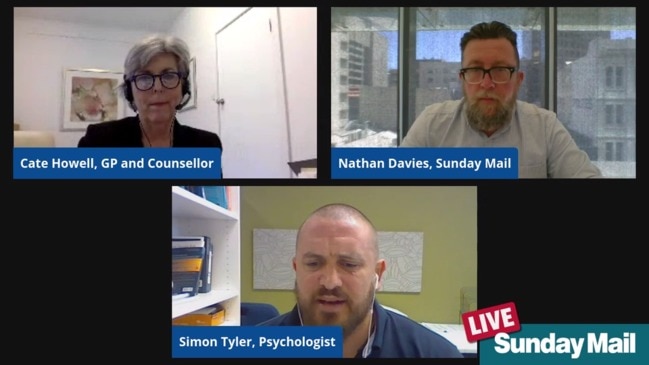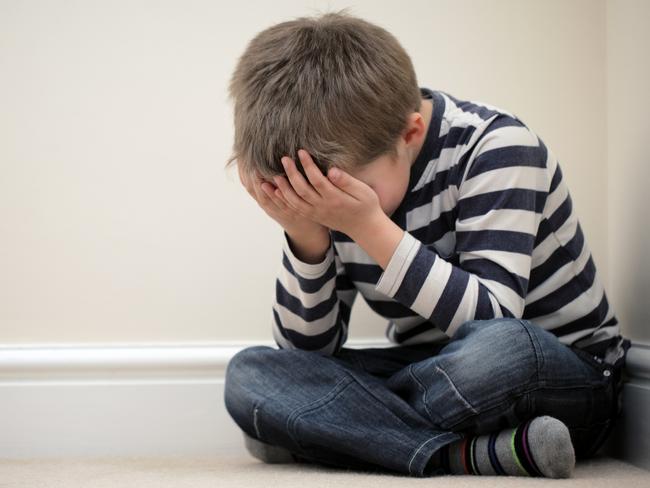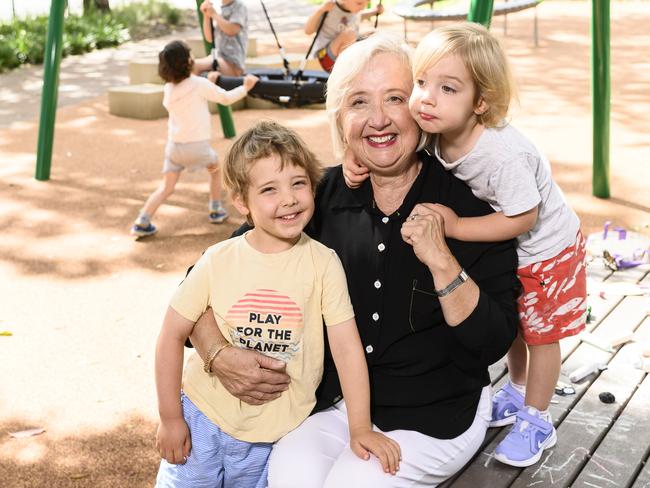Australian kids need less homework, more time to relax
Australia’s top childhood expert has warned homework and ‘competitive parenting’ are making kids stressed. Vote on how much homework you think kids need.

Education
Don't miss out on the headlines from Education. Followed categories will be added to My News.
Homework headaches and “competitive parenting’’ are fuelling kids’ high anxiety, Australia‘s new National Children’s Commissioner warned yesterday.
In her first interview, incoming Commissioner Anne Hollonds called for kids to be given more time to relax and play.
“In our very crammed lives, and with a crammed (school) curriculum, we have to ask if there’s enough time for kids to play,’’ Ms Hollands told News Corp Australia.
“We tend to load up their days, and expect schools to cram a lot into those days.’’

Ms Hollonds, who starts in her new job today, said teachers and parents might need to “reset expectations’’ about heavy homework loads, which can take students three hours every night.
“Play is very important for the development and wellbeing of children,’’ she said.
“Many people today would say kids are experiencing stress as a result of too much to do.’’
Australian teenagers are set hours of homework every night, with Education Victoria recommending one to three hours per weeknight, plus six hours on weekends, for students from Years 10 to 12.
Other state and territory education departments let individual schools set homework times – with many Queensland high schools telling senior students to study for at least 18 hours a week.
In South Australia, Gawler High School recommends an hour a night for Year 8 students, with up to three hours a night for Year 12 students.
The Hutchins School in Tasmania sets between 60 to 90 minutes of homework each weeknight for its middle school students.
Sydney Boys High requires between one and three hours a night, plus six hours on weekends, for students from years 10 to 12.

Ms Hollonds – a psychologist and former head of Relationships Australia, The Benevolent Society and the Australian Institute of Family Studies – also urged an end to “competitive parenting’’.
“The culture of criticism and judgment and competition (about parenting) doesn’t help any of us and ultimately is bad for our kids,’’ she said.
“Parents are all trying to do the best they can.
“We need a more supportive and compassionate culture – then families who are struggling would feel able to reach out for help.’’
Ms Hollonds urged parents to switch off their phones and devices and “eyeball’’ their children, who crave attention.
“Have some time for everybody to eyeball each other and have a conversation,’’ she said.
“As parents we don’t realise how important we are, especially in the teenage years.’’
Ms Hollonds said new schools should include child health services, to ensure struggling families get the help they need.
“We need to be ensure we are picking up early signs of domestic violence and mental health issues,’’ she said.
“Services need to be designed with people in mind, and not for bureaucratic purposes.
“We’re a rich country and we can do better for our kids.’’
Ms Hollonds called on friends and family to offer hands-on help and encouragement to struggling parents.
“Asking, ‘Are you OK?’ is not enough,’’ she said.
“Ask, ‘How can I help you? Can I hang out the washing for you? Would it help if I minded the kids for a few hours?’’
MORE NEWS
Trump’s political power women revealed
How Trump, Biden will change Australia
Reality of voting for Donald Trump

